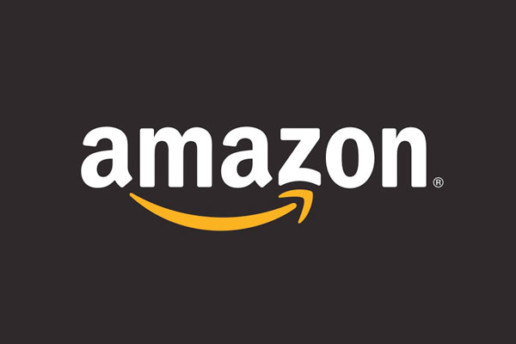Amazon has just entered the drug-distribution business
Amazon is on top, knocking big competitors out one by one. Today, they take down pharmacies by offering online health-care services. See what Amazon has in store here.
Amazon.com Inc. agreed to buy the online pharmacy startup PillPack, jumping into the health-care business with a deal that will give the retail giant an immediate nationwide drug network.
The move represents a formidable threat to pharmacy chains including Walgreens Boots Alliance Inc., which earlier Thursday reported tepid U.S. same-store sales, and rival CVS Health Corp. Walgreens was down 10 percent at 10:18 a.m. in New York, while CVS shares shed 8.9 percent.
Terms of the deal weren’t disclosed. The transaction is expected to close in the second half of 2018, according to a statement from the companies.
The U.S. market for prescription medicine is huge. In 2016, U.S. consumers spent $328.6 billion on retail prescription drugs, according to the U.S. government. CVS reported prescription sales of $59.5 billion last year, and Walgreens sold $57.8 billion worth of drugs in its fiscal 2017.
PillPack has mail-order pharmacy licenses in all 50 U.S. states, which could allow Amazon to expand quickly. PillPack also has relationships with most major drug-benefit managers, including Express Scripts and CVS, and says it works with most Medicare Part D drug plans. Those ties will give Amazon access to much of the prescription drug market in the U.S.
PillPack sells pre-sorted packets of prescriptions drugs, delivering them to customers in their homes. The closely held firm has software that automates many routine pharmacy tasks, such as verifying when a refill is due, determining co-pays, and confirming insurance. That eliminates much of the manual work that pharmacists often are saddled with now.
The pact follows months of speculation about Amazon’s plans to get into the pharmacy or drug-distribution business. Despite the retailer’s vast reach, entering the market presented a daunting logistical challenge in terms of licensing and dealing with a range of private and government payers. Acquiring PillPack’s networks helps Amazon surmount those hurdles.
Michael Rea, chief executive officer of Rx Savings Solutions, said PillPack could transform the industry and that employers and health plans would benefit from the deal, which he called a “sign of the times.”
“This move signals just how big of a market opportunity there is to change the pharmacy landscape,” Rea said in an email.
Amazon has been disrupting businesses from electronics to household staples and even package delivery. Pharmacy and health-benefits companies have long fretted that they’d be next. Chief Executive Officer Jeff Bezos signaled his interest in health-care earlier this year when he teamed up with Berkshire Hathaway Inc.’s Warren Buffett and JPMorgan Chase & Co.’s Jamie Dimon to form a health-care company to manage the health plans of their more than 1 million employees.
The selloff in drugstore stocks was reminiscent of the food-industry swoon that resulted in June 2017 when Amazon said it was buying Whole Foods Market Inc. Kroger Co., the biggest U.S. supermarket chain, saw $2 billion in market value wiped out in one day. Big packaged food stocks also took a hit.
“When Amazon sneezes, everybody else catches a cold,” said Joseph Feldman, an analyst with Telsey Advisory. “And I think that that’s more likely than not what you’re going to see today.”’
Long time coming
Prescription drugs sales are largely intertwined with groceries and personal items like makeup and shampoo and Amazon already sells bulk packs of latex gloves, bed pads and syringes. It recently began selling medical devices and instruments, as well.
Bezos has been thinking about the drug business for nearly two decades; in 1999, Amazon purchased a stake in Drugstore.com. That effort ultimately failed and Walgreens purchased the money-losing startup in 2011 and ultimately shut it down.
Pharmacist TJ Parker and computer scientist Elliot Cohen founded PillPack in 2013 after meeting at a medical-technology program at the Massachusetts Institute of Technology. The company raised more than $118 million from brand-name investors including Accel, Sherpa Capital and New York rapper Nas’s Queensbridge Venture Partners.
A September 2016 funding round valued the Boston-based startup at around $360 million, according to venture-capital database PitchBook. In April, CNBC reported Walmart Inc. was in talks to buy the company for “under $1 billion,” citing unnamed sources.
Standing firm
For now, Walgreens indicated that it was in no hurry to find a deal to respond to Amazon, despite the damage to its stock. On an earnings conference call, Walgreens CEO Stefano Pessina faced multiple questions from analysts about the PillPack deal.
“It is a declaration of intent from Amazon,” said Pessina.
He said Walgreens knew that PillPack was for sale as “it had been for sale for a while,” but that the retailer wouldn’t do deals based on emotions or make moves that could destroy value. Pessina insisted that physical pharmacies would continue to be “very important.”
The slump in Walgreens shares weighed on the Dow Jones Industrial Average, which added the stock to its index of 30 companies this month, replacing General Electric Co.
SOURCE:
Langreth R and Tracer Z (29 June 2018) "Amazon has just entered the drug-distribution business" [Web Blog Post]. Retrieved from https://www.benefitspro.com/2018/06/28/amazon-has-just-entered-the-drug-distribution-busi/
Will Amazon-Berkshire-JPMorgan coalition kickstart a benefits revolution?
What will happen if the Amazon-Berkshire-JPMorgan coalition becomes a real thing? Find out in this article from Employee Benefit Advisor.
The announcement that Amazon, Berkshire Hathaway and JPMorgan Chase would form an independent healthcare company for their U.S. employees is just one more move in a growing, albeit relatively quiet, revolution inside the benefits industry: Employers banding together for more control over a health system they see as wasteful and inefficient.
Employee medical expenditures have been the driving factor behind these moves. Last year, premiums for employer-sponsored family coverage hit $18,764, up 3% from the previous year, with employees paying an average $5,714 toward the cost, according to the Kaiser Family Foundation.
Frustration with those costs — and the lack of quality that often goes along with them — has resulted in a number of employer initiatives. But the news of the three corporate behemoths’ coalition may propel even more employers to band together, looking for alternatives on how they provide coverage while driving transparency in an industry notorious for obfuscation.
While it didn’t make the same splash as the big three’s news, two years ago 20 of the country’s biggest companies, including American Express, Berkshire’s BNSF Railway, Caterpillar, Coca-Cola, du Pont, IBM, Ingersoll Rand, Marriott and Verizon, joined together to form the Health Transformation Alliance. The goal of the group is to use data analytics, collective leverage and shared expertise to lower costs for all members. The group has grown to almost 40 members.

And at about the same time, health and financial consulting firm Mercer started running employer collectives to help companies save on pharmacy costs. There also are individual efforts. Intel, notes American Benefits Council president James Klein, has been a leader in direct contracting with healthcare providers.
“When large and successful companies come together in this way, it’s potentially disruptive,” says Frank Easley, senior vice president of Aon’s health and benefits group, about the Amazon, Berkshire and JPMorgan partnership. “The healthcare system is ripe for positive disruption and is in need of new solutions that improve employee satisfaction and reduce costs.”
While the three giants did not detail what their new company would do, they did say in a statement that the entity’s focus will be on technology that will provide employees and their families with “simplified, high-quality and transparent healthcare at a reasonable cost.”
The collaboration will likely pressure profits for middlemen in the healthcare supply chain. Potential ways to bring down costs include providing more transparency in prices for doctor visits and lab tests, and by enabling direct purchasing of some medical items, a person familiar with the companies’ plans said.
Efforts to increase transparency have been an important focus for employers of late and have “enormous potential” when it comes to transforming employer healthcare, says benefits consultant Jack Kwicien. If employers can explain to employees how and where their healthcare dollars are going, it will not only give workers a better understanding of their own money, but it has the potential to build a better relationship between employer and employee.
In addition, Amazon’s e-commerce operation could be used to send medication direct to patient’s homes, saving them trips to a pharmacy. Its cloud-computing division can store patient healthcare records so they can be easily accessed by doctors anywhere. And its payments system could be used to automate payments with healthcare providers.
If Amazon, Berkshire and JPMorgan are successful in lowering costs, the weight of the big three might kick the transformation engine into high gear, leading to a dramatic shift in the benefits delivery as more employers look to use combined leverage to lower their health costs.
“Any time organizations of this caliber — these are world class organizations — say they are going to tackle healthcare, you have to pay attention,” says Mike Thompson, president and CEO of the National Alliance of Healthcare Purchaser Coalitions. The organization advises around 12,000 organizations that buy health plans for millions of employees.
Thompson says that given Amazon and Berkshire’s records, it’s clear “that they have the potential to truly change the consumer experience for their employees, and frankly, that could become a model that could be used by other employers.”
Some benefits insiders, however, express doubts that the three behemoths will spur a widespread industry disruption. Their two biggest doubts: that corporate America can successfully battle the nation’s largest healthcare players and, even if successful, if they can cut costs in a meaningful way.
“Most health costs are incurred by a small percent of the population with chronic conditions,” Klein says. “So if this initiative is just about how health costs are paid for, and does not promote ways to improve health itself, the impact will be minimal.”
Still, business groups say the potential is there for more employer involvement in controlling costs and delivering healthcare, and the need is real.
“New entrants with fresh approaches like these may be just the prescription our ailing healthcare system needs,” says Brian Marcotte, CEO of the National Business Group on Health. “The collective resources of these three companies, emerging technologies and Amazon’s customer obsession and supply-chain savvy gives me optimism that they will pursue a consumer-focused model that will transcend the fragmented, provider-centric delivery system that we have today.”
Read more.
SOURCE: Mayer K. (31 January 2018). "Will Amazon-Berkshire-JPMorgan coalition kickstart a benefitsrevolution?" [Web Blog Post]. Retrieved from address https://www.employeebenefitadviser.com/news/will-amazon-berkshire-jpmorgan-coalition-kickstart-a-benefits-revolution?feed=00000152-175f-d933-a573-ff5f3f230000


